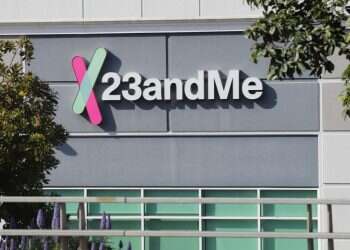The ongoing trade war is adding pressure to PepsiCo's already challenging position in the cola market, as tariffs target its soda concentrate imports. According to The Wall Street Journal, PepsiCo's decision to produce concentrate in Ireland over 50 years ago, driven by low corporate taxes, has now become a liability with a 10% tariff on imports affecting nearly all US sales of Pepsi and Mountain Dew.
Concentrates, the secret-recipe essence of sodas, are made in specialized facilities and shipped to bottling plants where they are mixed with water, bubbles, and sweetener. While PepsiCo relies heavily on Ireland for its US concentrate supply, Coca-Cola produces most of its concentrate for American sodas in Atlanta and Puerto Rico, a US territory, making drinks like Coke and Sprite less vulnerable to tariffs. "Ireland has long had the tax advantage – until the tariffs hit," said Carlos Laboy, an analyst at HSBC, as reported by The Wall Street Journal. He noted that PepsiCo is at a clear disadvantage, with the duration of the tariffs uncertain.
Both companies face challenges from a 25% US tariff on aluminum imports introduced in March, which could raise soda prices. Coca-Cola, which imports some aluminum from Canada, is exploring options like using more plastic bottles or sourcing US aluminum, according to The Wall Street Journal. Coke's CEO, James Quincey, acknowledged the potential price impact but emphasized mitigation strategies. PepsiCo, already grappling with a declining US market share, faces a tougher road. Last year, Dr Pepper overtook Pepsi-Cola as America's No. 2 soda, a low point for PepsiCo, which has shifted focus to food and energy drinks but is now trying to revive its soda sales, per The Wall Street Journal.
PepsiCo also produces concentrate in Texas, Uruguay, and Singapore but has not disclosed plans to counter the tariffs or whether they will increase soda prices. The trade war's impact extends beyond soda, affecting industries like apparel and toothpaste. Levi Strauss faces 10% tariffs on goods from several countries, while Wrangler benefits from producing 40% of its jeans in the Western Hemisphere, including Mexico, where products comply with the US-Mexico-Canada Agreement and avoid a 25% tariff on Mexican imports, as noted by The Wall Street Journal. Similarly, most Crest toothpaste is made domestically, but Colgate's production in Mexico could face tariff-related costs.
For PepsiCo's independent bottlers, many of whom are family-owned and already struggling with Pepsi's market share decline, the tariffs are a fresh blow. These bottlers, receiving concentrate in 55-gallon containers or tanker trucks, anticipate higher costs that could weaken PepsiCo's ability to compete, according to The Wall Street Journal. PepsiCo's heavy investment in Ireland, including a $189 million expansion of its Cork facilities in 2022, underscores its commitment to the region despite the new trade challenges. Keurig Dr Pepper, which opened an Irish concentrate plant in 2022 but also produces in St. Louis, declined to specify its US import volumes.




